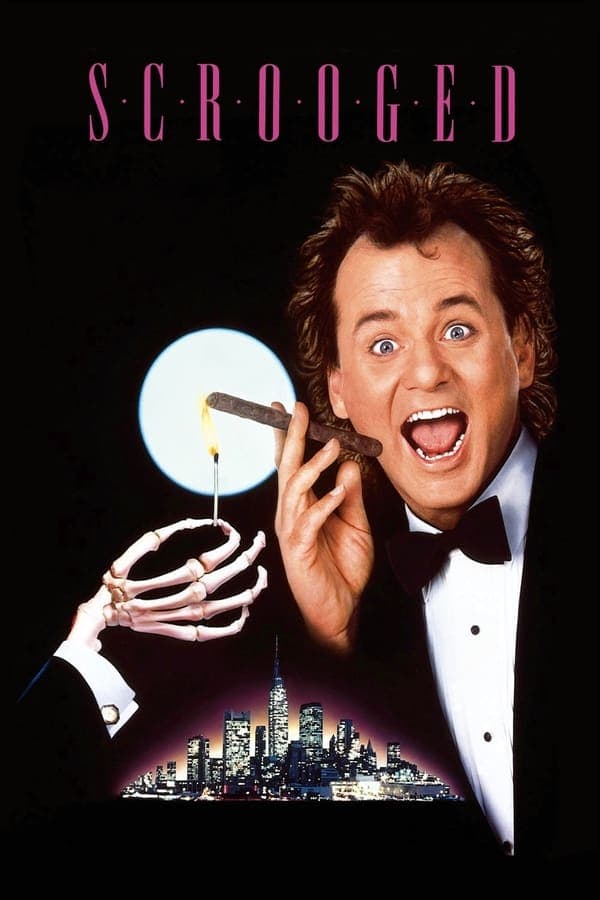
Scrooged
1988 • Comedy, Drama, Fantasy • PG-13
Frank Cross is a wildly successful television executive whose cold ambition and curmudgeonly nature has driven away the love of his life. But after firing a staff member on Christmas Eve, Frank is visited by a series of ghosts who give him a chance to re-evaluate his actions and right the wrongs of his past.
Runtime: 1h 41m
Why you should read the novel
Reading Charles Dickens' 'A Christmas Carol' offers a timeless literary experience that delves much deeper than any film adaptation can achieve. The novel weaves themes of redemption, compassion, and social responsibility through Dickens’ evocative prose, transporting readers to Victorian London and the heart of the holiday spirit. Engaging with the original work allows you to fully appreciate the depth of Scrooge’s transformation and the power of Dickens’ storytelling to evoke empathy for the less fortunate.
Unlike a movie, the book enables readers to savor the intricate character development and the vivid atmosphere Dickens crafts, which underpins the enduring relevance of the story. Each ghostly visitor is described with rich symbolism and detail, inviting readers to reflect on the consequences of one’s choices and the possibility of change. Dickens’ narrative style, laced with wit and sharp observation, makes the moral message resonate profoundly.
By reading 'A Christmas Carol', you connect personally with the text, experiencing both Scrooge’s darkness and his redemption intimately. The novel’s influence on holiday traditions and charitable giving demonstrates its lasting impact. Discovering the original writing not only deepens your understanding of the character but also enhances your appreciation for how stories can shape both individuals and society.
Adaptation differences
One major difference between 'Scrooged' and Dickens’ original novel is the setting and time period. While 'A Christmas Carol' is set in Victorian-era London with its characteristic social and economic challenges, 'Scrooged' transposes the story to late-1980s New York City, focusing on the life of a cynical TV executive named Frank Cross instead of Ebenezer Scrooge. This shift results in a uniquely modern atmosphere, with updated societal critiques relevant to contemporary audiences.
The characterization also diverges significantly. In the novel, Scrooge's meanness is tied to his avarice and disregard for the poor, depicted through his interactions with characters like Bob Cratchit and Tiny Tim. In 'Scrooged', Frank Cross is egotistical and career-driven, and his coldness mainly manifests through his ruthless approach to television production. Secondary characters are altered substantially or combined with new creations, offering a distinct emotional landscape and changing key relationships.
Furthermore, the ghosts in Dickens’ book are portrayed with a mix of eerie and benevolent qualities representing the past, present, and future. 'Scrooged' takes a more comedic and occasionally grotesque approach, reimagining the spirits in outlandish and offbeat forms. Their methods to prompt change in the protagonist are more exaggerated and tailored to comedic effect, thus altering the emotional tone and pacing of their interventions compared to the reflective mood in the novel.
Finally, the resolution in 'Scrooged' prioritizes spectacle and public display, with Frank Cross’s transformation culminating in a live-television speech. In contrast, Dickens’ novel focuses on the quieter, personal redemption of Scrooge, emphasizing his changed relationships and generosity. While both versions share the central theme of personal transformation and goodwill, 'Scrooged' adapts the storyline to fit the sensibilities and humor of its era, resulting in a markedly different emotional journey.
Scrooged inspired from
A Christmas Carol
by Charles Dickens











